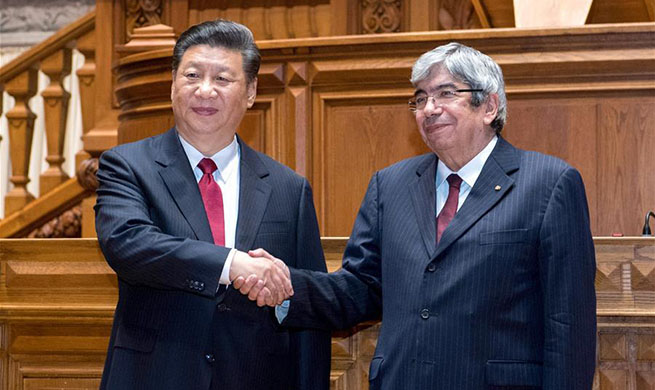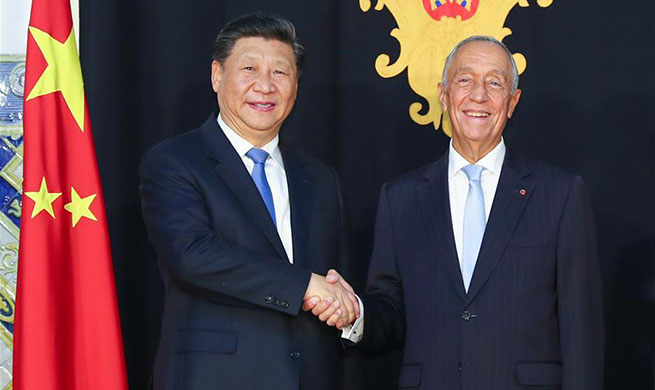by Xinhua writer Liu Yanan
NEW YORK, Dec. 6 (Xinhua) -- Block chain technology is demonstrating increasing potential for commercial use in the economy of the United States, according to industry insiders and experts.
Meridio, a platform launched in January, allows participants to create and trade digital real estate shares, has got one company participating in its business and is working to syndicate another two deals in January, Mohammad Shaikh, co-founder of Meridio told Xinhua on Thursday.
Block chain technology is regarded as an emerging technological design that allows people to securely transfer the ownership of units of value using public key encryption and proof of work methods.
The technology makes integrity very hard to compromise, better know-your-customer (KYC) practices and let asymmetry of information go away, said Shaikh at a panel discussion with annual industry event New York Deal Making promoted by International Council of Shopping Centers (ICSC).
Meridio works with commercial real estate company Cushman & Wakefield, Inc. and others to identify assets, private equities and asset holders interested in and looking at new models of funding, according to Shaikh.
Retail is not going to disappear and but has to innovate, said Doug Stephens, a futurist and founder of Retail Prophet on Wednesday at New York Deal Making.
"I think supply chain is obviously the most realistic and valuable use case for block chain but it requires the industry consortium to have a high industry standards," said Lisa Morales-Hellebo, co-founder of New York-based venture capital Refashiond.
"Now women in block chain are building supply chain innovations. They like making money, extra money, they can scale. And there is real business behind it," said Morales-Hellebo in an interview with Xinhua.
Moreover, FX Group and Mavatar Technologies has jointly launched an on-line platform on pilot basis in June 2018 which brought Walmart, Zara, Foever21 and Lamp Plus on board and allows shoppers and influencers to monetize their contribution to sales growth by sharing information mainly via social media.
Block chain technologies are employed on commission distribution with smart contracts which enables automatic payment and consistence of term, according to Amar Saigal, vice president of operations and technology with Mavatar Technologies Inc., developer of a decentralized marketplace and influencer marketing attribution platform named as mCart.
Saigal said the company also intends to enable shoppers to use the mCart system at physical stores.
Statistics show that 130 transactions took place on the Omni-channel marketplace with several thousands of transaction value from June to October of 2018.
The application of block chain may not take quite as long, but there will not be significant value creation for some time, according to Kevin Dennean, head of Americas technology and communication services equities at UBS Global Wealth Management's Chief Investment Office.
"There is a lot of energy and resources being invested in block chain by large established companies ranging from healthcare to communications, from advertising to healthcare, as well as state and local governments. And of course, this is an area with a lot of focus and involvement from private equity, venture capital, and entrepreneurs," said Dennean in an email response to Xinhua.
"There are useful applications of block chain for tracking shipping containers for tracking Mortgage-Backed securities things like that putting them on the distributive block chain that seems like an efficient thing to do, said Barry Eichengreen, professor of economics and political science with University of California, Berkeley.
Big financial institutions and some others are using block chain in ways that do not entail crypto currencies and that's the way forward, said Eichengreen in a recent interview with Xinhua.
New York City Economic Development Corporation currently is working on potential pilots with application of block chain technologies in the city and block chain technologies could be used in management of properties operated by the non-profit and official economic development promoter in New York, according to Karen Bhatia, vice president of creative and applied technologies with New York City Economic Development Corporation.













